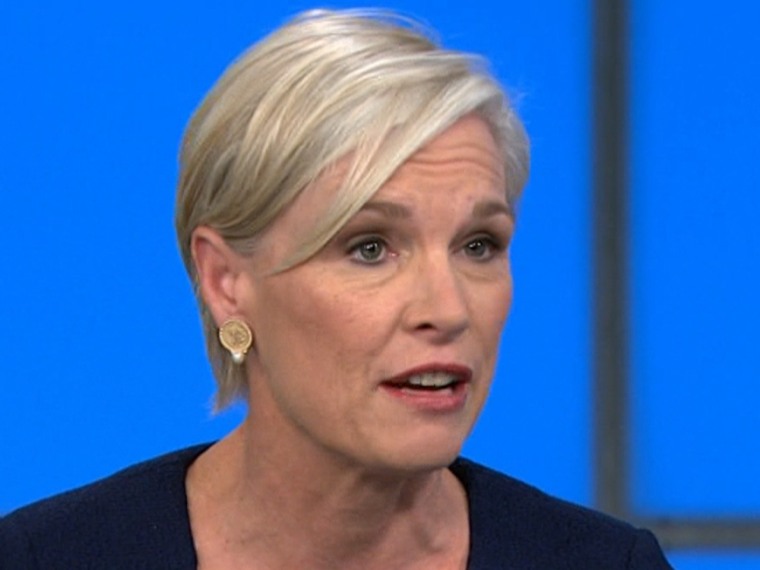Forty years ago this month, the Supreme Court handed down the landmark decision that remains one of the most divisive in U.S. history. The historic ruling of Roe v. Wade was a victory for women’s rights activists, heralded as a watershed moment that would put an end to the battle for control of women’s bodies.
But over the past four decades, women’s reproductive rights have taken a beating, perhaps because the language of Roe v. Wade left plenty of room for restrictions. The 7-2 court ruling stated that in the first three months of pregnancy, only a woman and her physician could decide whether or not to have an abortion. In the second three months, states could regulate abortion procedures. And in the final three months of pregnancy, the court decided, states could forbid abortion. Since then, dozens of states have enacted laws restricting access to abortion and to contraception and sex education as well.
The heaviest onslaught of anti-abortion measures has come in just the past few years, after the Tea Party swept a wave of Republican freshmen into the House in 2010. The following year set a record for new restrictions on women’s reproductive rights, with 92 provisions enacted in 24 states. According to a policy review by the Guttmacher Institute, 2012 saw the second-highest number of restrictions on reproductive rights ever, with 43 provisions in 19 states.
In contrast, no new laws were enacted in 2012 to improve access to abortion, contraception or comprehensive sex education. In fact, over the past two years, four states have established abstinence-only education, bringing to a total of 26 the number of states that stress abstinence in sex education. Tennessee, for instance, requires all sex education offered in the state to “exclusively and emphatically” teach abstinence. In Wisconsin, legislators removed requirements for sex education classes to be medically accurate and include education on contraception. The state does require, however, that educators stress the importance of abstinence before marriage.
All of this is counter to the perspective held by the majority of Americans, that women should have the right to choose. According to the latest Gallup poll on the issue, 77% of Americans think abortion should be legal in all or most cases. Just 20% say it should be illegal in all cases.
Appearing on Andrea Mitchell Reports Tuesday to discuss the 40th anniversary of Roe v. Wade, Planned Parenthood President Cecile Richards said, “it’s been consistent ever since Roe was decided, and again, for most people in this country, 40 years later this is an established right that women have.”
Richards, whose organization has taken fire for providing abortions, seems hopeful that the country will not backtrack on women’s hard-fought reproductive rights. “We've seen a kind of resurgence of young women and young men who are saying we're definitely not going to go backwards in this country.”
Yet on Capitol Hill, access to abortion and contraception are being questioned on an almost daily basis. On Friday, House Republicans reintroduced a bill that would ban federal funding for Planned Parenthood. Under the new measure, according to one of the bill’s supporters, Rep. Diane Black (R-Tenn.), “Title X federally funded grants will no longer be awarded to Planned Parenthood, the largest abortion provider in the United States, or any other organization that abuses their privileges as healthcare providers and fails to protect life by providing abortions."
While the controversy surrounding Planned Parenthood has been all about abortion, millions of women across the country rely on the publicly funded organization for other medical services. In 2011, contraception, cancer screenings and prevention made up 44% of Planned Parenthood’s services. Abortions accounted for just 3%.
“That's what I think we're seeing such an overwhelming rejection of,” Richards said on Mitchell Reports, “is folks feeling like we can't play politics with women's lives and with women's health care access.”
Government grants and reimbursements make up 45% of Planned Parenthood’s funding, and that support was seriously threatened by House Republicans in 2012. But forty years after Roe v. Wade, that support has never been stronger, Richards told Mitchell Reports, “largely because people do appreciate the kind of health care that we provide, to many women for whom we're the only health care provider that they'll see.”
The backlash, it turns out, has had some positive effects. “We've been able to provide more breast exams and more breast cancer screenings than ever in our history before because of the outpouring of support of folks across the country,” Richards said. “And that's the kind of health care that we really, we appreciate the ability to help women when they need us.”
